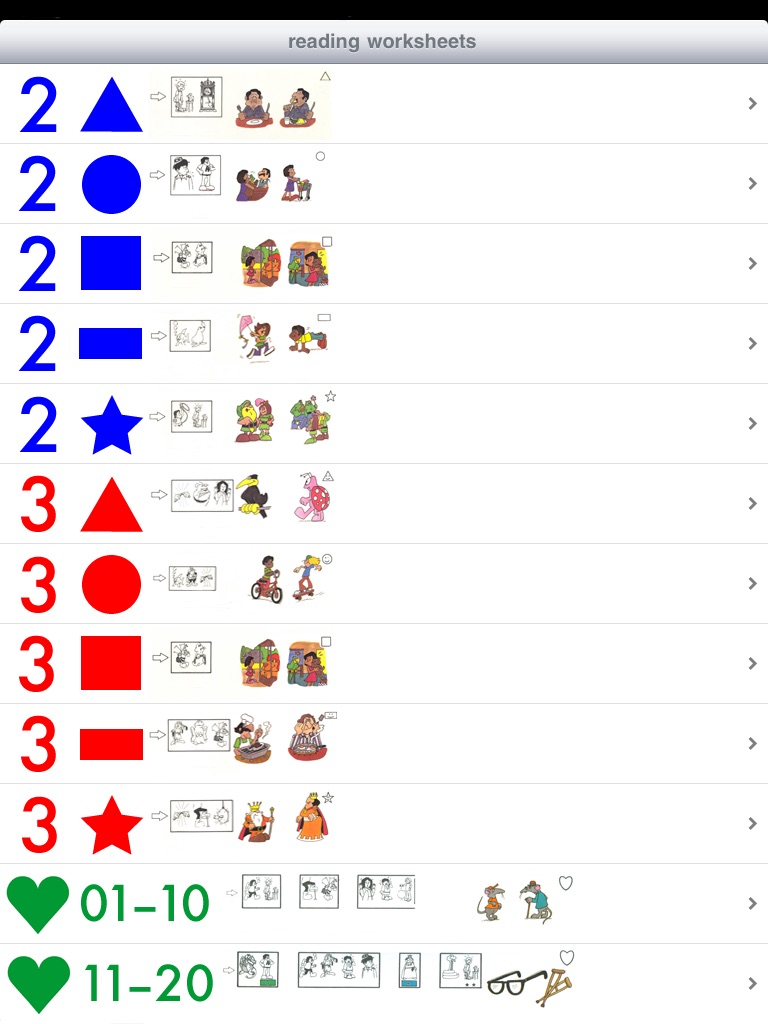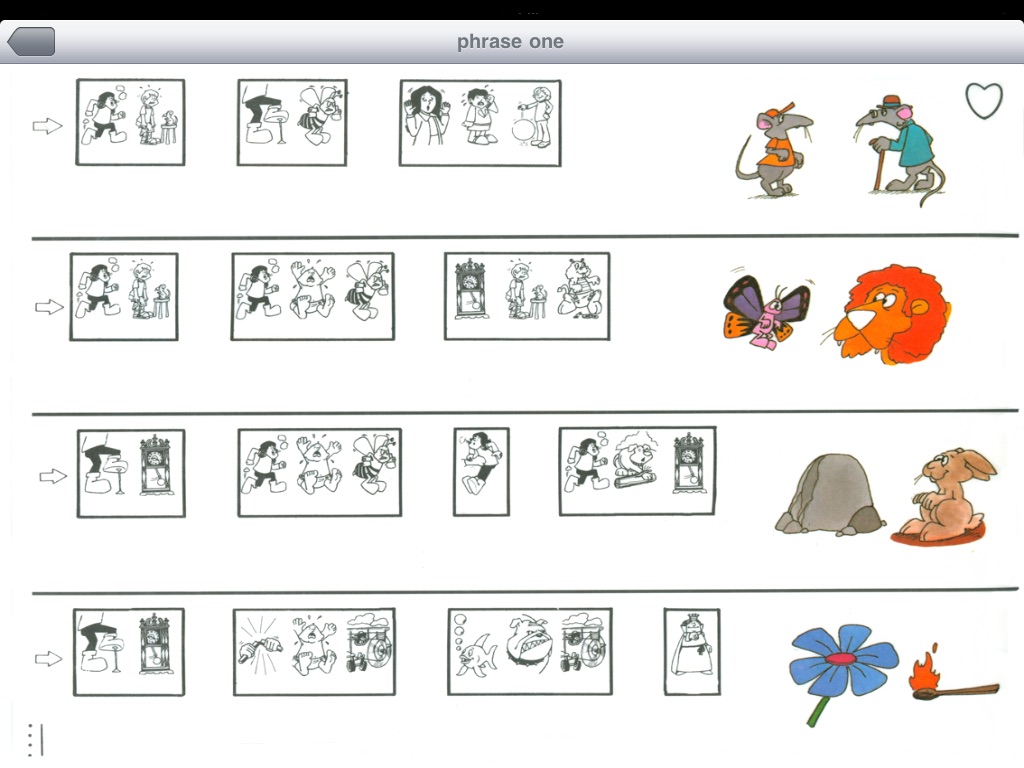
Reading Worksheets
Center for Innovation in Education
Reading Worksheets
Description
The fifth of the fourteen apps that comprise the Baratta-Lorton Reading Program.
The Reading Program is a reading and writing curriculum for beginning readers and any child who has already experienced difficulty in learning to read.
99% unique – 100% effective - 100% free
Background for the fourteen apps
The Baratta-Lorton Reading Program also known as Dekodiphukan (pronounced decode if you can) was developed by the Center for Innovation in Education whose many other offerings include Mathematics Their Way, the first non-traditional math curriculum adopted in by the State of California.
Dekodiphukan has been in use in classrooms across the United States and Canada since 1985. The Program has been used to teach thousands of children to read and to write regardless of background or supposed lack of reading readiness.
To date, no child using the program in a classroom setting has ever failed to learn to read or to write.
This Dekodiphukan reading and writing curriculum is now a series of fourteen apps plus a parent-guide for the iPad that, within a period of six months to a year (or occasionally a bit longer for some special needs children), will enable every child using it to read and to write. Reading with enjoyment. Writing creatively.
Dekodiphukan is a full fledged curriculum. It is a set of specific learning activities, not a set of games. The curriculum’s fourteen apps are all free with no ads - popup or otherwise - included. While the apps may be downloaded all at once and stored in a folder on the iPad, no more than two or three of the apps are used at any one time by the child.
Reading Worksheets
The fifth of the Fourteen Apps
The Reading Worksheets represent the child’s second effort to read the sounds on his or her own. There are 40 worksheets at the two-sound level and 40 worksheets at the three-sound level. As triangle Booklets are introduced, Worksheets are introduced in parallel.
At the two and three-sound levels, the child reads the word on the worksheet and touches the picture that matches the word. If the correct picture is touched, the word will play. If the child cannot recall the sound for an image, he or she can touch the image and the sound for that image will play.
Worksheets are introduced in parallel with Booklets but before the Picture Packets-Words app because the Worksheets are inherently easier than Picture Packets-Words. Worksheets with their “this one or that one” picture selection offer the child two choices, one of which is guaranteed to be right. The image audios and the picture-answers offer hints in the sound-blending process.
Picture Packet-Words present the child with ten different words to match with ten different pictures on each page with no audio clues. The introduction of Picture Packet-Words waits until the child is ready to read without the aid of audio hints.
Reading Worksheets
The child’s second experience in reading with the sounds
Presented in parallel with Booklets
Presented before the Picture Packet - Words apps
40 worksheets each at the two-sound, three-sound levels
40 worksheets at the phrase level
Audio hints at the two and three-sound levels



